2005 Modern Library Paperback Edition Introduction and editorial commentary copyright 2005 by Frank Kermode
Compilation copyright 2005 by Random House, Inc. All rights reserved. Published in the United States by Modern Library, an imprint of The Random House Publishing Group, a division of Random House, Inc., New York. M ODERN L IBRARY and the T ORCHBEARER Design are registered trademarks of Random House, Inc. eISBN: 978-0-307-76968-8 Modern Library website address: www.modernlibrary.com v3.1_r1
C ONTENTS
SEVEN MASTERPIECES OF JACOBEAN DRAMA
I NTRODUCTION
Frank Kermode
All the plays in this collection were written and first performed during the reign of King James I of England and VI of Scotland. Queen Elizabeth died in 1603, and in that year James arrived in London to claim the throne.
One of his earliest acts was to change the name of Shakespeares company from the Lord Chamberlains Men, as they had been called in the later years of Elizabeth, to The Kings Men, a gesture that enhanced the status of the theaters and the players. Shakespeares company, performing at The Globe but frequently also at court, staged within the first decade of the reign an extraordinary series of masterpieces by Shakespeare himself, including Measure for Measure, Othello, King Lear, Macbeth, and Coriolanus. But Shakespeare, despite what the playwright Webster called his copious industry, could not provide all the material that was needed. Of the plays in this anthology, the following were produced by his company at The Globe or, after 1609, in the indoor Blackfriars Theatre: The Revengers Tragedy, Volpone, The Maids Tragedy, and The Duchess of Malfi. The third and fourth of these may also have been performed at The Blackfriars, a very successful investment by The Kings Men. It proved so profitable that in the future, no more open-air theaters were built.
Among rival indoor playhouses, the most celebrated was The Phoenix; one play in this collection, A Chaste Maid in Cheapside, was performed there. Older open-air theaters nevertheless continued to existone of them, The Rose, close to The Globe, was the venue of A Woman Killed with Kindness. The older, larger playhouses provided cheaper and generally cruder entertainment than The Globe and The Blackfriars, but still made a substantial contribution to the various and lively Jacobean theatrical scene. More plays have been lost than survive, but the evidence is still conclusive: The reign of James I was the great age of English drama. Patrons of The Globe in the early years of the reign could have seen, in repertory at various times, King Lear, Macbeth, Volpone, The Revengers Tragedy, and Antony and Cleopatra, as well as many plays by other authors. The plays included in this anthology represent, as far as seven plays can, the variety and quality of the non-Shakespearean works presented during this period.
With great regret I have had to omit plays by such important dramatists as John Marston, George Chapman, Philip Massinger, John Ford, and others. Thomas Middleton has claimed what might seem a disproportionate share of my space, the reason being that he excelled in city comedy as well as in tragedy.  It used to be argued that there was a catastrophic change in the national mood about this timea shift from Elizabethan to Jacobean, from a merry to a more melancholy, disillusioned England, from a society that had not yet quite lost touch with the religion and the customs so violently assailed by the reformers during the reigns of Henry VIII and Edward VI to one in which doubts and anxietieseconomic, political, even metaphysicaltook firmer hold. In fact, the last years of Queen Elizabeth were not very serene. She was aging and increasingly difficult; she had to suffer the treasonable conduct of her favorite Essex; there were bad harvests, inflation, severe visitations of the plague, and continuing foreign threats. The world was changing fast as the queens health failed.
It used to be argued that there was a catastrophic change in the national mood about this timea shift from Elizabethan to Jacobean, from a merry to a more melancholy, disillusioned England, from a society that had not yet quite lost touch with the religion and the customs so violently assailed by the reformers during the reigns of Henry VIII and Edward VI to one in which doubts and anxietieseconomic, political, even metaphysicaltook firmer hold. In fact, the last years of Queen Elizabeth were not very serene. She was aging and increasingly difficult; she had to suffer the treasonable conduct of her favorite Essex; there were bad harvests, inflation, severe visitations of the plague, and continuing foreign threats. The world was changing fast as the queens health failed.
The question as to who should succeed her was made harder by her refusal to discuss it. The arrival of James was a relief, but only until his own troubles imposed themselves. James prided himself on being a king by divine right, an absolutist claim that was to prove fatal to his son Charles I. James, with some justice, regarded himself a man of peace, though his relationship with his parliaments was anything but peaceful. Those who had welcomed him became disillusioned in their turn; there were manifold reasons for discontent, as there are under most governments. There were certainly grounds for it under so complex a monarch, with his pretensions to absolute power, his favorites, his passions for hunting and theology, and his unpopular way of encouraging the immigration into England of yet more alien Scotsmen.
When James changed the name of Shakespeares company to The Kings Men, the poet and his fellows became royal servants and had thereafter a valuable, though relatively humble, connection with the court, where they performed more than all the other companies put together. They had most of the best actors, and the best theaters. They kept on good terms with the Master of the Revels, the official in the Lord Chamberlains office who was responsible for licensing plays. In the early days of the Elizabethan theater, many plays were thrown together by several writers, piecework done for the likes of the impresario Philip Henslowe. The days when actors were strolling players in the tradition of medieval entertainers, and liable to be treated as vagabonds, were still not so far away, but the case was different with independent, well-established companies, of which The Kings Men was the most powerful. The actors were now professionals, men of talent and experience.
The sharers who held stock in the company and its theater, Shakespeare among them, grew rich. Shakespeare sued successfully for a grant of arms to his father, thus making himself a gentleman in an age when you could tell a gentleman from a yeoman or tradesman by the way he dressed. To support this social promotion, Shakespeare acquired a good deal of property, mostly in the Stratford area. But there were dramatists, contemporaries of Shakespeare, who did not prosper as he did, and they continued to collaborate in many hastily written plays to satisfy what seems to have been the virtually insatiable appetite of the playgoing public.  T HOMAS H EYWOOD (1574?1641) was an actor and the author of a well-known and informative book about his trade called An Apology for Actors (1612), in which he claimed to have had a hand in 220 plays, of which only a handful survive. He wrote many other books, including a long poem called Troia Britannica about Troy and its fabled connection with English history, and a curious work of mystical theology called The Hierarchy of the Blessed Angels.
T HOMAS H EYWOOD (1574?1641) was an actor and the author of a well-known and informative book about his trade called An Apology for Actors (1612), in which he claimed to have had a hand in 220 plays, of which only a handful survive. He wrote many other books, including a long poem called Troia Britannica about Troy and its fabled connection with English history, and a curious work of mystical theology called The Hierarchy of the Blessed Angels.
Readers of A Woman Killed withKindness may detect in it a pious strain consistent with his religious interests. Heywood had a contract with the entrepreneur Philip Henslowe, who owned The Rose. He may have served both as actor and dramatist for this playhouse, which was smaller and less grand than The Globe, its younger Bankside neighbor. Yielding to the competition, Henslowe abandoned The Rose and the Bankside in 1600, and built a larger theater, The Fortune, in another part of the town. Henslowe often employed more than one playwright on a single play, and The Rose, like another popular playhouse, The Red Bull, catered primarily to a citizen audience, lacking the stronger middle- and upper-class connections of The Globe. Nevertheless, at least in the open-air theaters, there would still be a good mixture of social classes, citizens, apprentices, law students from the Inns of Court, gentlemen, and, somewhat to the surprise of foreign visitors, women.


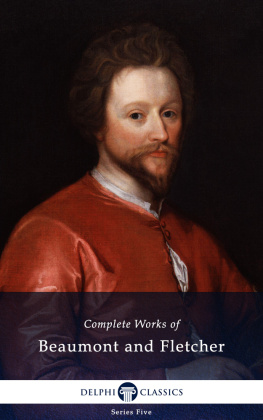
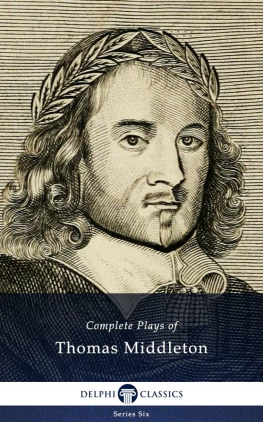
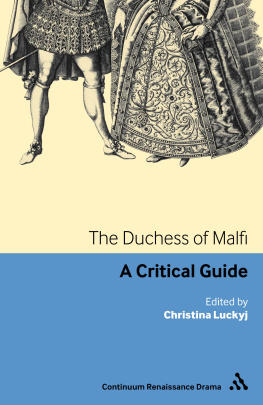
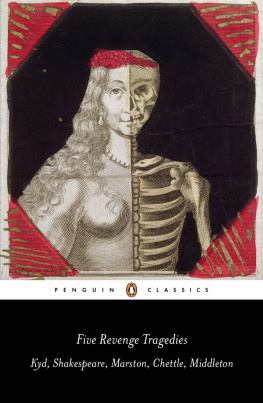
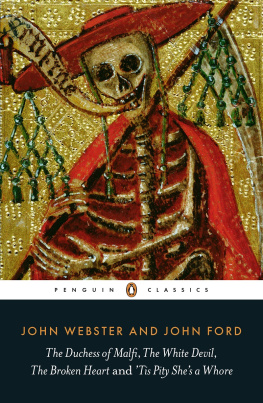

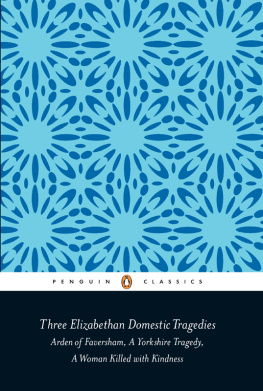
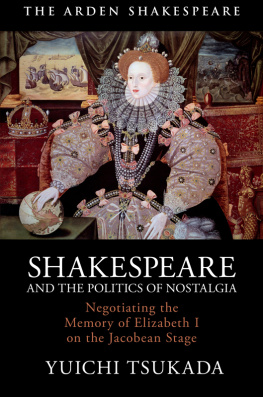
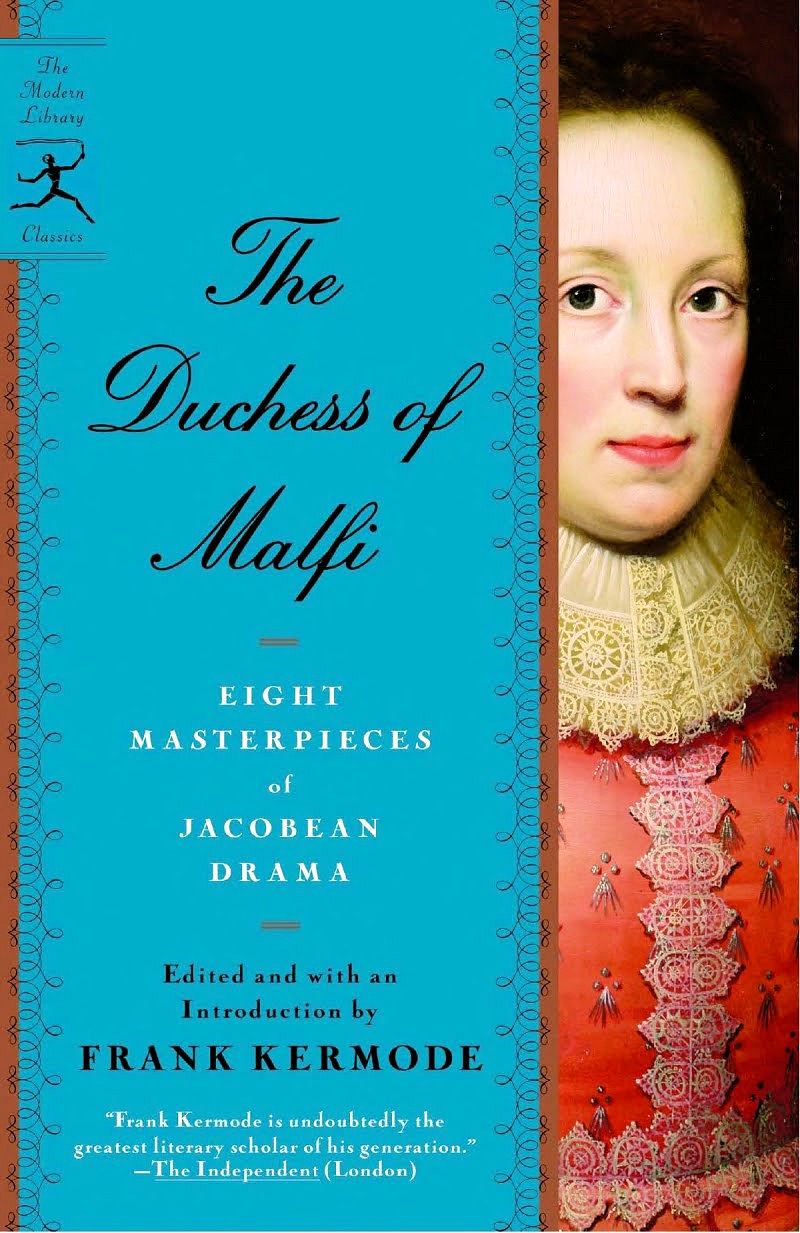
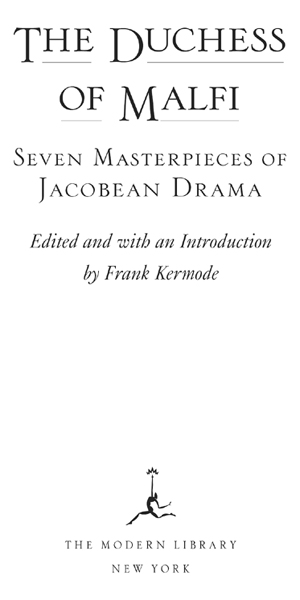
 It used to be argued that there was a catastrophic change in the national mood about this timea shift from Elizabethan to Jacobean, from a merry to a more melancholy, disillusioned England, from a society that had not yet quite lost touch with the religion and the customs so violently assailed by the reformers during the reigns of Henry VIII and Edward VI to one in which doubts and anxietieseconomic, political, even metaphysicaltook firmer hold. In fact, the last years of Queen Elizabeth were not very serene. She was aging and increasingly difficult; she had to suffer the treasonable conduct of her favorite Essex; there were bad harvests, inflation, severe visitations of the plague, and continuing foreign threats. The world was changing fast as the queens health failed.
It used to be argued that there was a catastrophic change in the national mood about this timea shift from Elizabethan to Jacobean, from a merry to a more melancholy, disillusioned England, from a society that had not yet quite lost touch with the religion and the customs so violently assailed by the reformers during the reigns of Henry VIII and Edward VI to one in which doubts and anxietieseconomic, political, even metaphysicaltook firmer hold. In fact, the last years of Queen Elizabeth were not very serene. She was aging and increasingly difficult; she had to suffer the treasonable conduct of her favorite Essex; there were bad harvests, inflation, severe visitations of the plague, and continuing foreign threats. The world was changing fast as the queens health failed.